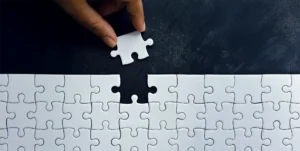I wonder what goes through your mind when you see a priest in identifiable clothing out in public?
Obviously you’re less likely to see an Israelite priest around these days, but whether it’s full priestly garb or a little white dog collar, people of the cloth are expected to identify themselves. If you’ve ever been lost in a museum or national park you know the relief of finding someone in uniform. Someone who has the information you need to help you. Someone familiar with the place, who can be a guide, who can give good direction and advice. In a similar way, clergy identify themselves as such in order to (at least in theory) highlight their availability to help those in need of help in their spiritual journeys.
You are part of a royal priesthood
Although we typically imagine the word “priest” to mean someone holier than us – a professional, perhaps – it actually includes each and every believer. Much like the word “saint”. These words below were originally written by Peter to Jewish believers, but by extension include all those grafted into the commonwealth of Israel:
“You are a chosen race, a royal priesthood, a holy nation, a people for God’s own possession, so that you may proclaim the excellencies of Him who has called you out of darkness into His marvelous light; for you once were not a people, but now you are the people of God; you had not received mercy, but now you have received mercy.” (1 Peter 2:9-10)
Peter is referring back to a couple of places in the Hebrew Scriptures here. He’s reminding the Jewish people who had been called “not my people” and “has not received mercy” in Hosea that their original calling was to be a chosen people, chosen out of all the peoples on earth to bear God’s own name:
“Now if you obey me fully and keep my covenant, then out of all nations you will be my treasured possession. Although the whole earth is mine, you will be for me a kingdom of priests and a holy nation.’ These are the words you are to speak to the Israelites.” (Exodus 19:5-6)
God spoke those words to the Israelites at Sinai, some seven weeks after being delivered from slavery in Egypt. He saved them and then sent them out to be a banner for the God who saves.
Just as the Levites were a go-between for the rest of the tribes and their God, administering the tabernacle and sacrifices for everyone, the entire people of Israel were now to become priests to the world, a go-between or link between humanity and their Creator.
God’s people were delivered… and sent!
In Hebrew, the phrase “Let my people go!” is שַׁלַּח אֶת-עַמִּי which literally means “Send my people!” The people of Israel were not just rescued out of Egypt but they were sent out for a purpose: they were emissaries of the Lord, known by His name, and God’s name was attached to His people. He is the God of Israel.
By delivering them and taking them for Himself, God created a flagship nation, sent to show the world what He was like. He gave them The Book of how to live according to His rules and they started out on a journey that would teach the watching world how God interacts with His people. Not that Israel has ever been an exemplary model, but Israel’s story gives the world a good idea of what God is like.
Paul writes in Romans 3:2, “the Jews were entrusted with the oracles of God”. Later, in chapter 9 he tells us,
“They are Israelites, and to them belong the adoption, the glory, the covenants, the giving of the law, the worship, and the promises. To them belong the patriarchs, and from their race, according to the flesh, is the Messiah, who is God over all, blessed forever. Amen.” (Romans 9:4-5)
Just as this mandate was given to Israel at Sinai where God sent Israel to be priests to the nations, so at Pentecost God poured out His Spirit on His people from all nations, sending all believers to be His priests to those still in the captivity of darkness. It’s the same process: deliverance, then sending.
That means, whether you are Jew or Gentile, if you are born again you are called to be a priest. You are, in fact, a priest. You might be a bad one, you might be a good one, but that is what you are.
What is a priest?
The role of priest includes mediation, administration, and reconciliation. Priests represent God to others. Priests are like ambassadors, mediating between the one they represent and the ones to whom they are representing. The Israeli embassy re-presents Israel in your country, as if Israel was present, and the ambassador’s role is to speak words on behalf of those they re-present. As priests we re-present God to people, which is an awesome responsibility. When believers were first named “Christians” in Antioch, the word meant “little Christs” – or “mini Messiahs” in Messianic parlance. We represent our Lord. Again, we may do this well or we may do it poorly, but whether we like it or not, we represent Jesus to a watching world.
Secondly, there’s the administrative function – the ministry of a priest. Under Moses, there was a lot of washing, cutting, burning, cleaning and sacrificing to be done. Someone had to do it. The role of priests is described in the Jewish Mishna as “תורה וקטורה”, that is sacrificial duties and teaching the Torah. Someone had to make sure the ark was carried in the correct manner, and someone had to clean out the altar after all the sacrifices. Someone had to be responsible for taking down the veil each time the tabernacle was moved on, and putting it up again at the next stop. Priests administer the word and the work of God. Teaching the word is a huge responsibility, whereas carrying out the practical work can be incredibly practical and mundane. But it is all “avodat kodesh”, holy work – not to be despised.
Ministry can mean the work of helping others understand the Bible, listening to someone, praying and sending up “incense” or prayers to the Lord on behalf of others, or it can simply be moving furniture. We are God’s vessels, His hands and feet on this earth. We are priests who carry out God’s work. Again, we may do it well or we may do it poorly. There have been plenty of bad priests in the past, but others strove to serve God with all their might, no matter what the task. Since you are a priest, it might be worth thinking how you could impart the word of God to others – who do you know that you could be encouraging in their faith? Can you find good resources to help you lead others through the Bible?
And lastly priests have the role of reconciliation. There is a gaping chasm between our holy God and sinful humanity, but priests can urge and persuade humanity to turn to their Creator who loves them, and equally plead for the lives of their fellow man before God. This is a role of great import and love.
Therefore, knowing the fear of the Lord, we are trying to persuade people, but what we are is known to God—and I hope it is known to your consciences as well… For the love of Messiah compels us, since we have concluded that One died for all; as a result all died. And He died for all so that those who live might no longer live for themselves, but for the One who died for them and was raised.
…Now all these things are from God, who reconciled us to Himself through Messiah and gave us the ministry of reconciliation. That is, in Messiah God was reconciling the world to Himself, not counting their trespasses against them; and He has entrusted the message of reconciliation to us. We are therefore ambassadors for Messiah, as though God were making His appeal through us. We beg you on behalf of Messiah, be reconciled to God.” (2 Corinthians 5:11,14-15,18-20)
What an honor – the task of helping to heal the rift between humanity and God. This is the task that God Himself has entrusted to us in the Great Commission. Whether we are aware of it or not, we do represent God to those who don’t know him. This means we can share His heart, His words, and tell of His kindness. We also have the freedom to enter the royal throne room of God to intercede for others, and bring their needs before Him. We can ask on their behalf for mercy, intervention and miracles.
You may not have thought about it much up until now, but you are a priest. It is a solemn task given to every believer. Have a good day at work!
Photo by Priscilla Du Preez on Unsplash
















